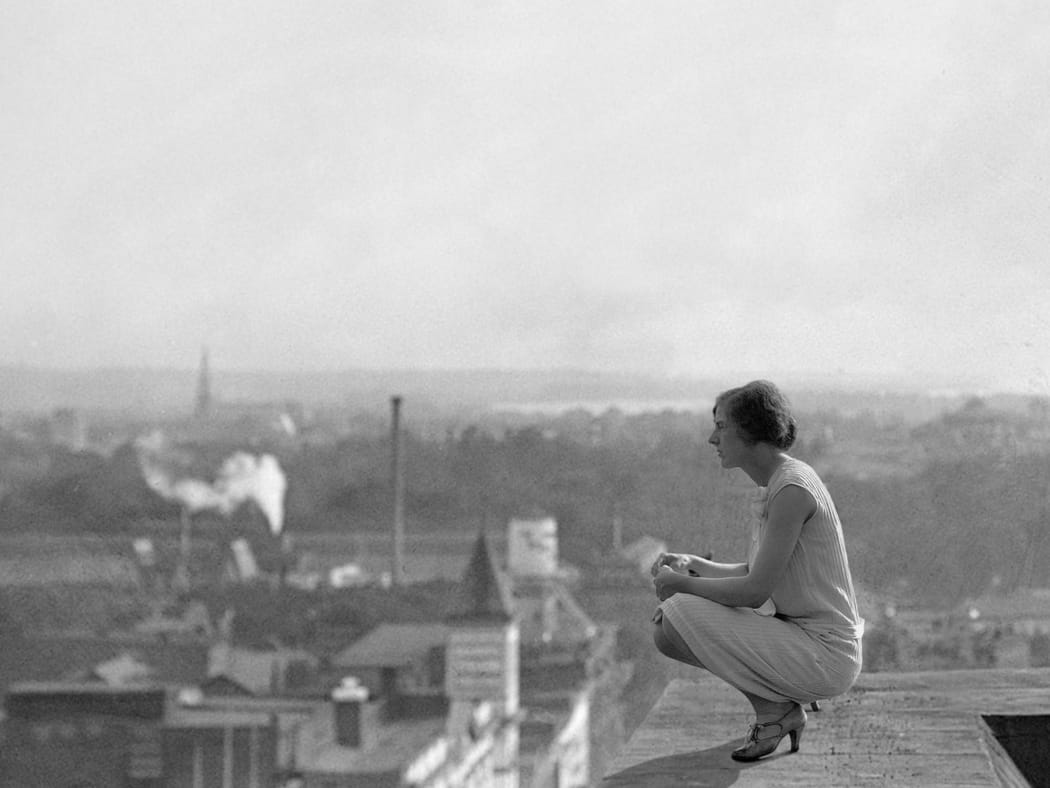
“Her body was the continuation of war.?
Las Malas, Camila Sosa Villada
Some days ago we took leave of a fateful year, 2020, that has made us rethink our entire vital structure, awaiting the new one as if we left the change to fate. We leave behind some months in which a global pandemic has brought to the forefront the cleavages of the capitalist system in which everything that cannot be commoditised becomes superfluous, precarious. Caregiving was mentioned by all after seeing the terrible images of elderly people dying in nursing homes, the forgotten ones of a cannibal system. Children closed at home, the almost impossibility of continuing to work, together with the co-responsibility of confinement, women who could not return to work (almost 20% of unemployed, four percent more than men) are some of the symptoms that have emerged due to this pandemic that express a non-egalitarian system. The face of precariousness is a woman, therefore it requires a feminist analysis.
"Your body is a battleground", stated the artist Barbara Kruger in 1989; thirty years later the fight still has not ended. The end of the year 2020 has also left us with great news: the approval of the right to free and medically assisted abortion in Argentina, after many decades of women's struggle claiming the non-intervention of the State in their personal decisions. Bodies return to the foreground of debate, the bodies in plural, especially the bodies of minoritised groups, who physically embody the social gap. It includes both the calls pleading the importance of Black people's lives and the demonstrations of Polish or Mexican women.
In 1970 Kate Millett published Sexual Politics, and in August that same year she was on the cover of Time magazine. Her analysis of why "sex is a social category imbued with politics" is fundamental to understand, even today, the relationships around gender established within the framework of the patriarchal system. The rise of reactionary groups and the extreme right-wing parties is not an isolated fact, but it is closely related to feminist progress. Any advance towards a more egalitarian society, that is to say, a more democratic one, encounters a reaction in those who have enjoyed some specific historical privileges. The images of white supremacists entering the Capitol by breaking windows, loaded with weapons, and, finally, this very powerful image, due to its symbology, of one of them with his legs spread wide apart (a full manspreading) in Senator Nancy Pelosi's office, is no coincidence. Everything that patriarchy teaches about the male role is summarised in this image: to break into a woman's space with enough power to let his hair down over her objects.
Today, the power of the patriarchal system, rearmed in groups such as the Incel, QAnon groups, YouTubers and macho forums (or the extreme right-wing generally speaking), shows that sexism is so embedded in our society that it embraces every social class. As Millett pointed out: “sexual politics is a mindset buried deep in our culture which transcends the politics of class, however deeply intertwined the two may be",1 and bell hooks, "poor and lower-class men are as able to oppress and brutalize women as any other group of men."2 Patriarchy, as a political system, a mindset and a way of life, is so deeply rooted in our culture that it does not require violence to assert itself: its values are firm and its socialising system so perfect that it is generally accepted, and only when it is questioned it responds with violence.
Women's bodies as battlegrounds, as paintings of denunciation, from Ana Mendieta to Las Tesis, are, once again, the axis around which debates revolve, from where free caregiving emerges, those who suffer violence, precariousness, sexual exploitation. María Ángeles Durán, National Sociology Award, who has been a researcher on time use and work at home for more than forty years, is clear: personal income tax should be raised to 70% only to be redistributed and to pay for some of the caregiving that is today free of charge. A caregiving that is carried out by women in more than 80% of the cases. The feminisation of poverty finds in free work and non-paid tasks two of its fundamental grounds.3
The power of feminism, which has become especially intense over the last few years (since #MeToo to March 8, 2018, women's marches all over the world, or the demonstrations against the court decision on the Sanfermines' rapists) is at the crossroads of the rise of extremist movements that want to keep, at any cost, their patriarchal privileges. Feminism, as an instrument of thought and as a political system, holds in its hands the capacity to transform the future from a more democratic point of view. The image of the male, vertical, authoritarian, withdrawer, destructor and anti-ecologist is transformed into a more horizontal, redistributive, egalitarian and fair system. Bodies are located at the centre, but they do it by paying special attention to careviging, with co-responsibility, with values that do not hold in a capitalist economy. Not without reason, the twentieth century witnessed the end of revolutions; however, feminism is the only force for change that exists and resists in spite of everything. As Celia Amorós points out, feminism is a revolution that is absorbing others. "Without feminism, there is no revolutionary struggle, because what can be done if we only count on half the population?"4
1 Millett, K. (2019). Política sexual (5th ed.). Madrid: Cátedra.
2 hooks, bell. (2020). ¿Acaso no soy yo una mujer? Mujeres negras y feminismo (1st ed.). Bilbao: Consonni.
3 Cobo, R. (2020). “Feminización de la pobreza”, in Ser feministas. Pensamiento y acción (1st ed.). Madrid: Cátedra. Ed.: Alicia H. Puleo.
4 Interview with Celia Amorós (2019). Consulted on December 30, 2020, in El País: https://elpais.com/sociedad/2019/03/15/actualidad/1552663877_409540.html

